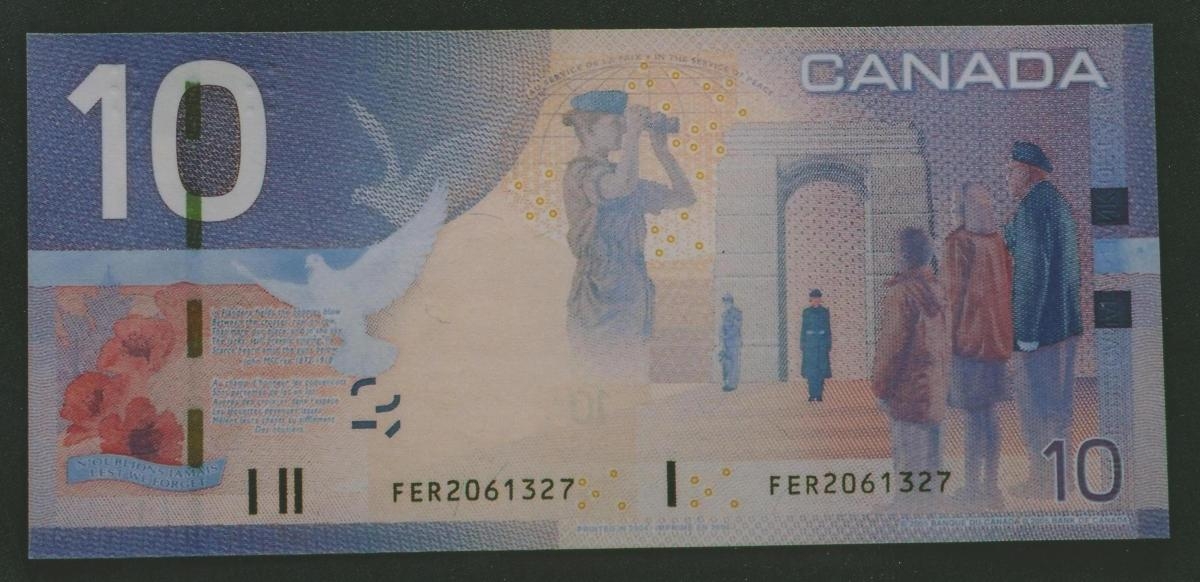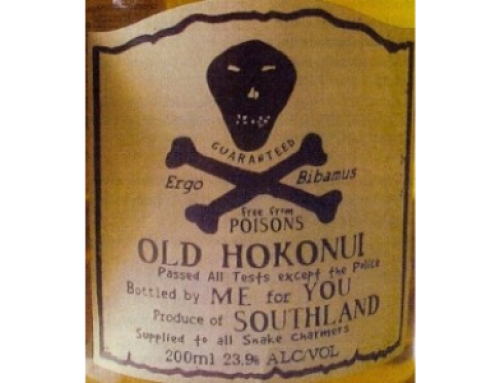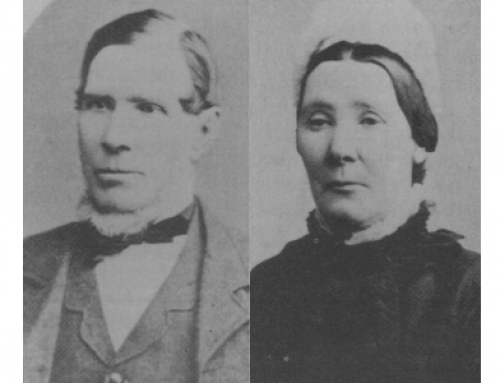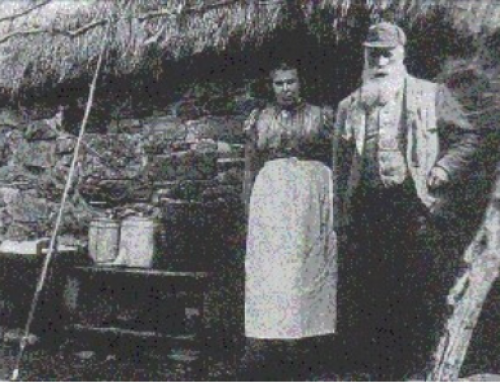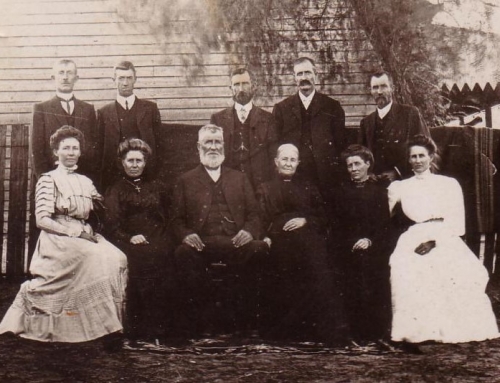Content by: Alan K. McRae
My mother Iris Olive McRae always had a fascination for Lieutenant-Colonel John McCrae as her father who fought in the Canadian Army had lost an arm in the First World War. Lieutenant-Colonel McCrae also served in Belgium and France. She had an admiration and appreciation for the Army medical men and nurses and had a scrapbook with various newspaper cuttings relating to Army Physician John McCrae. Unfortunately, my mum passed away before the “McCrae” note was issued. John McCrae was born in Guelph in Ontario in Canada on 30th November 1872 and became a doctor before the outbreak of the Boer and First World Wars.
The Bank of Canada note (right) featuring John McCrae’s poem “In Flander’s Fields” was the first in the new series of bank notes for use in Canada with the words appearing on the reverse of the note. The words include – “In Flanders Fields the poppies blow; Between the crosses, row on row; That mark our place, and in the sky; The larks, still bravely singing, fly; Scarce heard amid the guns below.” It is probably one of the most recognised First World War poems.
The purple coloured ten dollar note was issued on 17th January 2001 and was part of the series known as “Canadian Journey”. The reverse design incorporates not only the poem but also a returned serviceman and maybe his two grandchildren standing beside him, memorial arch and other service personnel as well as white doves, a wreath of poppies along with a banner with “Lest We Forget” – all symbols of remembrance and peace.
Both sides of the note were designed by Bruce Stewart. The front of the note (left) has a portrait of Sir John A. Macdonald, the first Prime Minister of Canada, and a holographic stripe which incorporates Canada’s famous maple leaf emblem.
In line with current policy all the text on the notes are in both English and in French. The note was re-released in May 2005 with improved security features to try to reduce the amount of counterfeiting, especially of this most common denomination. When viewed under ultraviolet light certain incorporated security features become visible.
It was during the Second Battle of Ypres in Belgium on the Western Front in the spring of 1915 that this scenario began. The area was known by the local inhabitants as ‘Flanders’. Major John McCrae was at the time Brigade-Surgeon with an artillery brigade of the Canadian Infantry Forces. The Canadians were in the trenches when the German Generals ordered the dreaded chlorine gas be used on 22nd April 1915. With all its debilitating effects the Canadian and other Allied troops fought on. With John McCrae in his dressing station in the trenches he was soon surrounded by all horror – the dead, the dying and the hopelessness of it all. Before the battle was over (and it lasted more than two weeks) a friend and former medical student Lieut Helmer was killed and as usually happened he was buried in a shallow grave marked by a quickly-made wooden cross. Unable to find an Army Chaplain he conducted the simple service amongst the self-sown wild red poppies – the Flander’s poppies, which would later become a symbol of remembrance in all Allied nations.
The following day he wrote his now famous poem, the original the Bank of Canada would later look when the note was designed. Fortunately, they did as rumours surfaced that the words on their $10 bank notes were wrong and were to be recalled. Fortunately, the rumours proved false – the wording was as John McCrae had written it. McCrae actually wasn’t that happy with the poem and discarded it however it was retrieved by someone and posted away to England to the magazine ‘Punch’ and appeared in print in their issue on 8th December 1915.
Canada’s bank notes are printed by either the Canadian Bank Note Company or a bank note printing company in Germany. The note seen here is printed on paper made of cotton fibres however from this year (2011) their new notes will be like the Australian notes and made from synthetic polymer.
Unlike my grandfather who after some eighteen months was repatriated home to Canada Lieutenant-Colonel John McCrae died from pneumonia in France in 1918 and never made it home to see his family.

